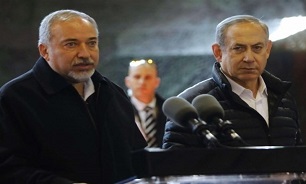Israel's Netanyahu Says Early Election Must Be Avoided
 Netanyahu has faced calls from his coalition members to hold a snap election after the resignation of Defense Minister Avigdor Lieberman on Wednesday.
Netanyahu has faced calls from his coalition members to hold a snap election after the resignation of Defense Minister Avigdor Lieberman on Wednesday.
Lieberman quit over what he described as the ruling party’s too-soft policy on protests by Palestinians near the Gaza border.
Israel’s Finance Minister Moshe Kahlon, who heads the centrist Kulanu party, was the first coalition partner to call for an early election after meeting Netanyahu on Thursday.
Kahlon’s calls were echoed by Aryeh Deri, head of the ultra-Orthodox Shas party and by members of the nationalist Jewish Home whose head, Naftali Bennett, asked to succeed Lieberman as defense chief but was turned down by Netanyahu on Friday.
The loss of Lieberman’s Israel Beitenu faction leaves Netanyahu with control of just 61 of the 120 seats in parliament, according to Reuters. Each of the remaining government factions now has the power to effectively dissolve the coalition.
Netanyahu, who heads the right-wing Likud party said that he will meet Kahlon on Sunday “in a last attempt to convince him not to bring down" the coalition.
Analysts see an early election as a done deal, with Netanyahu and ministers trying to pin responsibility for bringing the coalition down on each other so as not to lose favor with their right-wing voter base.
Netanyahu is under investigation in a series of corruption cases, and there has been speculation that he may bring the ballot forward to win a renewed mandate while Israel’s attorney-general decides whether to indict him.
Both Lieberman and Bennett compete with Netanyahu’s Likud for right-wing voters and have reportedly spoken in favor of harsh Israeli military action against Palestinians in Gaza.
A poll published on Wednesday by Hadashot showed Likud falling by one seat from 30 to 29 after months of polls that have shown it gaining power. Only 17 percent of respondents were happy with Netanyahu’s Gaza policy.
Message end/
